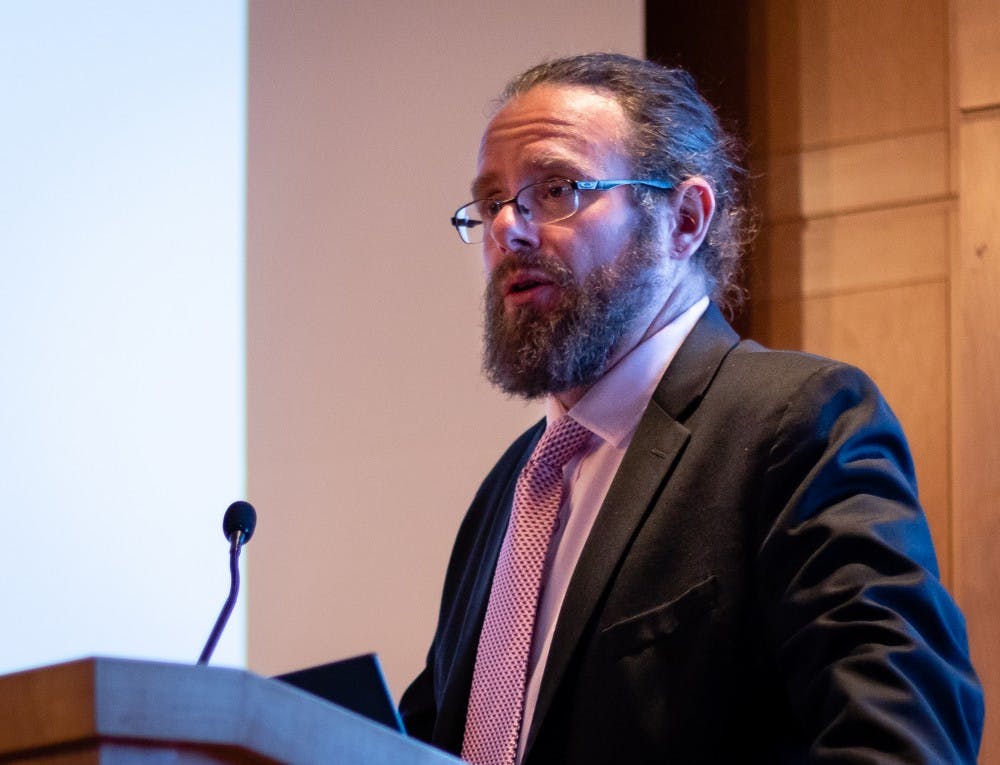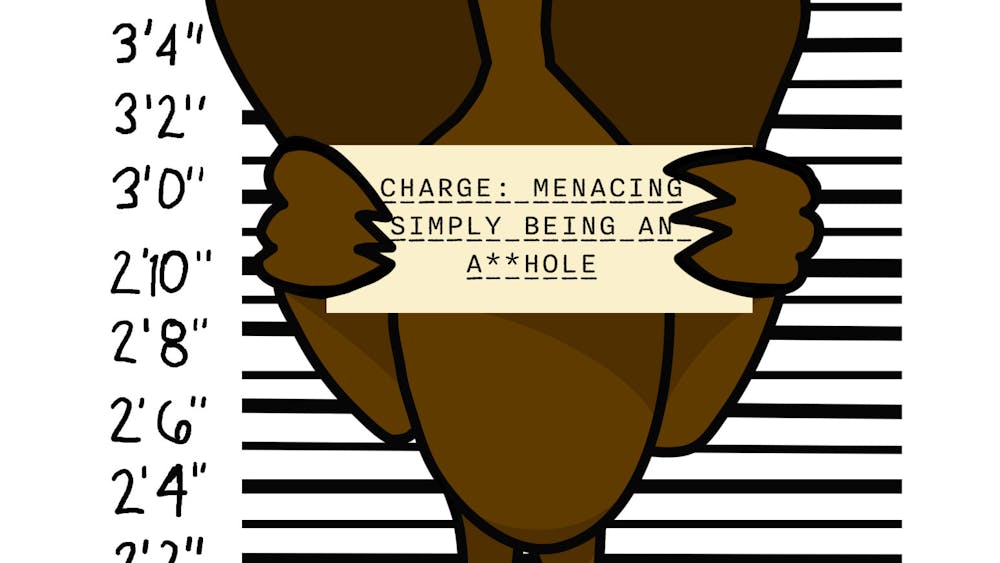Edward Baptists speaks about how slaves freed themselves

Edward E. Baptist gives a talk on Civil War emancipation on Oct. 4 in the Sarah and Daniel Opperman Auditorium in Charles V. Park Library.
Cornell professor Edward Baptist discussed how the freedom of slaves was not because of white politicians or any law, but because of the resistance from within the slave communities.
Baptist spoke for the George M. Blackburn Endowed Lecture on Thursday in the Sarah and Daniel Opperman Auditorium in Charles V. Park Library.
People view Lincoln as one of the United States’ greatest presidents, but he is great for reasons besides emancipation, said Baptist.
“Maybe we could say Lincoln wasn’t the Great Emancipator, but he was the Great Get-Out-of-the-Wayer,” said Baptist.
He said before the Emancipation Proclamation even became a reality, slaves had already broken down slavery during mid-1861 to July 1862. During this time, slaves had been escaping to the North.
This escape was made possible by the Civil War itself. Before the war, racism and slavery were beaten into American culture, Baptist said.
“People, both North and South, had their reasons if they were white to want to believe that not just slavery, but the prevailing racial order in general was natural, that it wasn’t going to change,” said Baptist.
Strict policing was implemented to prevent the movement of fugitive slaves. Baptist said all eyes were on runaway slaves because people had monetary incentives to bring slaves back to their owners.
However, when the war started, those who kept their eyes on slaves went off to fight at war, said Baptist. This made it “easier” for slaves to flee north.
What increased the speed of slaves moving north was when the government ruled slaves as “contraband” of the South, Baptist said.
“Contraband” was property of the South that had been used to wage war against the federal government. Since the South had been making slaves do work, the slaves could be seen as contraband and be taken by the northern soldiers.
After this, large groups of slaves began showing up to northern forts and camps, and ruling themselves as contraband. Out of those groups that had made it to the North, one slave would then turn around and liberate more of their friends and family.
While slaves moved north, Lincoln had been faced with the choice to declare emancipation for all slaves, but he kept putting it off when other politicians pushed him on it, said Baptist.
“I really liked the point that (Baptist) was pushing," said Commerce Township graduate student Tyler Shields. "It wasn’t white elite policymakers in Washington that led to emancipation; it was people on the ground.”
Lincoln eventually made the Emancipation Proclamation, but by that point, slaves had already done all the work, Baptist said. He “got out of the way” and let the slaves take matters into their own hands.
“I’ve watched movies about President Lincoln, but I learned more about the other side of the story, not just what the media has portrayed about it,” said Snover freshman Wyatt Janowiak.
Finally, Baptist emphasized that while whites may have the thought that slaves were content or wouldn’t rebel, slaves working to free themselves had started back in colonial America.
“We think about revolutions as being started by the young, but any actual revolution started a long time before it actually breaks out," said Baptist. "It started by entire populations. It started by hopes that are carried and that are passed on.”




